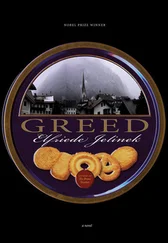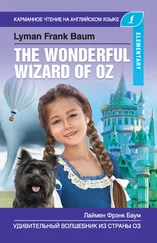Autumn always did have a good deal on its conscience. Especially when someone still young in years is responding sensitively to it. Old people are forever thinking of death, young people do so only in autumn, the season of universal decay in the vegetable and animal kingdoms. Rainer maintains that in autumn nights he puts forth the wings of a magic all his own. Then later, bleeding cats on chains lick the caterwauling from their mauled fur. This is a poem. Rainer's mind involuntarily turns to women whenever he thinks of autumnal decay, his mother (for instance) is decaying without let up. A woman always wants to have something shoved into her, either that or she's giving birth to a child, which comes out of her. That is Rainer's image of Woman. There's an effusive stench of light, says Rainer, in the poem about autumn. It's not quite over, but very nearly. As in his mother's case. Father's still a go-getter. But Mother's all no-ever. More than she loves him, Mother loves his sister. Her need is greater (she says) because her soul is in greater danger. His father, on the other hand, prefers him, because he is the Son and Heir and will perpetuate his name.
Using all those senses that are not currently required for the pursuit of poetry, he keeps his ears pricked for the telephone, which will convey Sophie to the house, no effort involved. If he's asked if he's expecting a call he says no, what would I be expecting, but in reality he is waiting for that beloved voice. Which only materialises on rare occasions. You ought not to take the first step on account of your status. Why on earth can't the voice reach him via radio waves instead of this idiotic request programme where idiotic people send messages to others who are even more idiotic, wishing many happy returns of their dreary birthdays or saints' days. It would have been better if these people had never been born, it makes no difference if they're alive or not.
Sophie thinks of sport a lot but very rarely of love. A sporting lass has other things on her mind.
There are too many unbeautiful things within Rainer. These things are a tremendous burden on a child, and an adolescent cannot shrug off the burden so easily. Far too often the boy saw his mother, like the skeleton of an old horse, buckle into a big V beneath the father's blows. Usually old slippers were employed for the purpose, which could be thrown away after use. Apparently the beatings began on the very day the War was lost. Up till then, Father had been beating sundry foreigners. Now only Mother and the children were at his disposal. He had chased people into the marshes, too, where they quickly passed away. He can prove it. It was just his bad luck that others who did the same are now climbing up the ranks once more, whereas he is not. That's Fate. It's an individual thing. Even in that erstwhile elite troop there were failures such as his father, destined to remain unimportant little shits forever. The elite component disappeared and all that remained was a lump of humanity. But he's an honest worker and has nothing to be ashamed of, he says. He has already tried his hand at a variety of jobs, but so far he's always failed at them. He drove to France because he wanted to handle balloon advertising for a French product, but they found someone they thought smarter and assigned the project to him. One more chance passed by. And Father is gradually shrivelling up, naturally, with age.
Mother tells him the children's education is the most important thing. It is a duty. The grammar school affords the opportunity for that education. Father tends to say they should go and start earning, which rather alarms the educated twins. They do not believe this can be expected of them.
From the overgrown corners of the room, the ugly mug of impending poverty (which in fact is no longer impending but has long since been a fact of life) gives a friendly grin and a wink. The twins' jeans, oft altered and reinforced to protect them from wear, drag furrows through the floor's protozoic ooze, Mother has to go cleaning strangers' homes, her own home is neglected. In the homes of those strange people there are strange men. For this reason Father roars like an ox being roasted alive. Mother won't be spared, there's nothing to protect her, constantly she's kicked and knocked about. Furthermore, she does not create that atmosphere of tranquil cosiness which should be the hallmark of the housewife's home. And it really is up to her to create that, since the ex-officer's task is quite different from the promotion of contentment. Wherever he comes across cosiness he destroys it.
Among their acquaintances, who are few in number, Father is considered an oddball who utters bizarre comments and won't accept a single thing he is offered, because he'd just as soon not eat from other people's fleshpots, thank you very much (as he puts it).
Father often thinks of the dark skeletons of people he killed. The white and immaculate snow of Poland turned bloody and maculate. But snow goes on falling, again and again, and by now it bears no trace of those who disappeared there.
Mother, on the other hand, tries to teach her children the principles of humanity. That is the task of a mother. Still, Mother soon has to abandon the attempt because the children are out to be inhuman and do everything they can to look the part as well. Whatever you do is in vain. And revolting. Everything's revolting, but it's never disposed of. Not at all. It's all revolting: the crumpled papers, old cigarette butts on the floor, cheese rind, wurst skins, coffee stains and in particular apple cores and orange pips. They are the worst. They are not cleared away because retching is a delicious feeling. The flat is full of corners and recesses crammed with piled-up garbage. The petit bourgeois always has something to hide, that is what those corners are there for. Chez Witkowski you can view everything the petit bourgeois has to hide because they throw nothing away. And there he stands, the Good Citizen, amidst his corners and recesses, ready to withdraw at the drop of a hat and indulge in unseen piggery.
The twins' unhappiness makes them superior because they have shaken off the shackles and do what they want. Rainer says: people's lives are predetermined in some way or other, but not mine, I'm superior to them on account of my Will. On the other hand, the individual is free if he wants to be. Rainer avails himself of that freedom, graciously: here he is, being awarded his accreditation certificate. There is a certain heroism in him. In this lonely youth. Lonely in the sense that no one sees him, which halves the value of even the prettiest heroism. Still, at least Rainer can look himself in the face when he's alone with his mirror.
From time to time a day will be quite normal, and Father will pick one of the children at random and beat it, bellowing as he does so. Because the child in question doesn't want to do what he wants it to do. At such times the child will flail about helplessly. But the child proper will rise from out of the body to a somewhat higher elevation which affords a better view of the cruel goings-on. Anna and Rainer got into the habit of doing this when they were kids, and now they imagine they are still high up aloft, looking down on the rest. Physically, their development is troublesome and hesitant. But their sense of Higher Things has remained intact. In their heads, something is building up, gathering for an explosion of orange light at some later date.
And the time has already come, now that the twins have left Father behind in terms of knowledge. But nevertheless Father believes he knows more than the children do. Age and experience have made him knowledgeable. In this new era, what sets you free is knowledge, not work. We don't want to work, no, least of all with our hands. Many of these youngsters who only want to dance and listen to jazz are too immature to do anything in their leisure time, which is why they are deprived of it.
Читать дальше












